Lots to talk about this week as we look in some detail at the Education’s Secretary’s latest guidance to the OfS and what it means and doesn’t mean.
We’re taking a break next week but will be back with a round-up of the essential news the following week.
HE Strategic Priorities – Williamson’s letter to OfS
The Secretary of State wrote to the OfS on 8th Feb 2021 with a new set of strategic priorities.
Interestingly, he also said “apart from my guidance letters on 14 September 2020, 14 December 2020, 19 January 2021 and 2 February 2021 which related to delivery of particular time critical issues, this letter replaces all previous guidance.” So what are the priorities now, and the context for them? and what is no longer a priority? We quote chunks of the text from Williamson’s letter for colleagues to scan through because the tone of the wording is quite insightful. We cover those other 4 letters below as well as what is now “off the table”.
Williamson states: my strong view that the OfS should focus on driving up quality, being risk based, minimising bureaucracy, and ensuring that it delivers on equality of opportunity in higher education…this letter replaces all previous guidance [apart from the 4 other letters he mentions which he states relate to delivery of time critical issues of course]..…The OfS will, of course, still need to deliver its functions under HERA and its operational responsibilities, but the replacement of the majority of previous guidance will, I hope, provide clarity on my priorities and allow the OfS to focus its energy and resources on these. Bottom line – this is an instruction to the OfS to crack on (and crack down on) the sector to ensure progress is made on his top issues.
But before we get to what they are, this made us try and guess what the biggest “problems” are for the SoS:
- A student (particularly one from a WP background) who takes a degree in a creative subject at a “lower quality” university and goes on to pursue a career in creative arts which is relatively low paid compared to the average earnings of students studying that subject.
- A student (particularly one from a WP background) who studies anything and then struggles to find a “graduate level” job, but particularly if it is a humanities, or media course at a “lower quality” university.
- A student who doesn’t complete their degree.
Why might these be a problem? In each case the answer is the same: they should never have gone to university at all, and specifically the one they chose. They should never have incurred loans they probably won’t repay; they should have studied, say, plumbing, on an FE course, because:
- there is no social mobility – these students have not improved their relative financial position;
- there is no benefit to the taxpayer – as they have not increased their earnings, they will not make higher tax contributions and are unlikely to repay their student loans – so the subsidy was not value for money;
- there is no alignment in terms of the UK’s productivity or strategic priorities – given their choice of courses these students are not contributing to the “build back better” vision for the future which is all about STEM, and they are not contributing either to public service and the nation as nurses, teachers or social workers or working in social care (although they might be, but it doesn’t count for this purpose because their first degree wasn’t in those things);
- the students who fail to complete must have done so because the course was poor quality or there was insufficient support.
Of course this all ignores the fact that many students can’t or don’t leave their local region for employment, that there may be challenging local economic circumstances, and that the jobs and average salaries of their contemporaries at other “better quality” universities may also be influenced by the social capital, school experience, and non-WP background of the majority of their students which makes it easier for them to become lawyers, bankers, captains of industry, politicians (although a minute ago we were only counting careers directly linked to the first degree subject). Of course the SoS wants these issues to be considered (he mentions socio-economic status and geographical inequality) but only to the extent that more students affected by those issues should go to high tariff institutions. Because then they will presumably get the same outcomes as every one else who goes there. Won’t they?
And it ignores the fact that those who dropped out may have done so because of financial pressures, or caring responsibilities, or mental health issues or a whole range of other reasons.
So if those are the problems, and the reasons for them, here are some possible answers. Then we’ll look at the SoS’s priorities. You’ll be amazed how aligned they are.
- outcomes are what count, so define quality by looking at outcomes metrics, and cut funding or close down those that don’t meet your baseline (already in hand but worth reinforcing);
- link funding to strategically important subjects (that’s only hinted at here, but there has been more before and is more to come);
- students should really only study arts or creative subjects at prestigious specialist institutions and only study humanities at high tariff institutions (linked to outcomes, see above), and so it might make sense to stop some universities from offering those courses or find another way to reduce the government subsidy for them (there are several ways of doing that and some feature below);
- ration places at university so that the system costs less but try and level the playing field for applicants including finding a way to ensure that more students from disadvantaged backgrounds get into high tariff universities (where they will surely get better outcomes….yes, that is here too).
Of course there is more, on pet political issues like free speech, and reducing bureaucracy. There is more on mental health and helping students to complain. And there is a lot on getting the OfS to support the big skills agenda (i.e. technical education, lifelong learning etc.).
You can read the Wonkhe take on it here. And Wonkhe also have a blog by Susanna Kalitowski of the University Alliance which sets out another view, considering the conflict between quality = outcomes and flexible learning.
So here we go.
Quality and Standards: The biggie.
- One of my highest priorities and an important manifesto commitment is to drive up quality and standards in higher education, which is a fundamental part of our levelling up agenda. This is in addition to the work outlined above on the quality of online learning…. would like the OfS to progress rapidly to ensure that a robust enhanced regulatory regime can be operational as soon as possible.
- I fully support the OfS desire to ensure that decisions on regulatory intervention and registration can be made in relation to minimum absolute standards of quality which apply across the whole of higher education provision. I firmly believe that every student, regardless of their background, has a right to expect a minimum standard of education that is likely to improve their prospects in life…I note that these standards are likely to take account of, though not be confined to, quantitative measures, including measures relating to student outcomes.
And he means business:
- The OfS should not hesitate to use the full range of its powers and sanctions where quality of provision is not high enough: the OfS should not limit itself to putting in place conditions of registration requiring improvement plans for providers who do not demonstrate high quality and robust outcomes, but should move immediately to more robust measures, including monetary penalties, the revocation of degree awarding powers in subjects of concem, suspending aspects of a provider’s registration or, ultimately, deregistration. It is also my view that the OfS should not be registering providers without rigorous quality and a commitment to robust graduate outcomes, which should be closely monitored once registered.
And related to quality:
- TEF: He asks the OfS to interpret the Government response to the Independent Review of the Teaching Excellence and Student Outcomes Framework. Sub text: sort it out and make it do/measure what the Government want it to do.
- Student complaints: the phrasing suggest that OfS may be expected to play more of a role in students’ complaints. Using the OIA as the complaint ombudsman has been both a blessing and curse for the Government during the pandemic. Blessing because they can offload it to a different body, and curse because it left them without an arrow to shoot the sector with. Williamson asks the OfS to continue to monitor this closely, and to take swift action where it is clear that quality and academic standards have dropped. I would like the OfS to communicate the findings from their monitoring work and ensure students are aware of the notification process that they can follow to raise any issues.
- Death knell for NSS: Minister Donelan also asked the OfS in her 14 September letter to carry out a radical review of the National Student Survey (NSS). I can confirm that this remains a high priority, in order to address the downwards pressure that student surveys of this sort may exert on standards. I would like the OfS to take the time it needs to ensure this review is genuinely radical, consider carefully whether there could be a replacement that does not depend on a universal annual sample, and ensure that a replacement does not contribute to the reduction in rigour and standards. It is my strong view that the NSS should play at most a minimal role in baseline quality regulation. It’s interesting to juxtapose this with the paragraph above – don’t ask students about their experience or use that feedback in a quality framework or the TEF – but do encourage them to complain and take action on their complaints.
Fairness and admissions (lumped together, which is telling – concerns about admissions are all in this document about fairness, except minimum entry standards, which are about quality.)
- 2021: to ensure that admissions this year run as smoothly as possible and students’ interests are fully taken into account.
- PQA: Central to my plans to improve equality of opportunity is…post qualification admissions…we believe it has the potential to contribute towards improved student outcomes in the longer-term. He asks the OfS to support the Department’s work to develop the evidence base and implementation. And makes the main intent behind the change clear: We want to ensure that any move to post qualification admissions genuinely improves the prospects of disadvantaged students and, in particular, facilitates greater numbers of them accessing the most selective universities.
- Supporting WP while controlling numbers: It is very important that the OfS’ work on access and participation focuses on delivering real social mobility: ensuring students are able to make the right choices, accessing and succeeding on high quality courses which are valued by employers and lead to good graduate employment. Encouraging more and more students onto courses which do not provide good graduate outcomes does not provide real social mobility and serves only to entrench inequality
- I would like the OfS to continue to consider broader factors, including socio-economic status and geographical inequality, which are likely to impact on access and participation in higher education. This should include a focus on white boys on free school meals who are currently the least likely group to progress to higher education
- I would like the OfS to encourage universities to do much more to work with schools in a way which meaningfully raises the attainment of disadvantaged children. Theresa May’s agenda still hasn’t gone away, policy recycling at its best. What does this mean? It’s interesting though, when funding for UniConnect has just been cut (see GW’s letter of 19 January 2021)
- I would like to remind the OfS that it has a statutory duty to have regard to the need to promote equality of opportunity, not equality of outcome. The OfS must be a champion for the importance of academic and technical excellence in all aspects of the student lifecycle, from selection to graduation. [Again a reminder that there are other routes than HE and Ministers want to see technical education rise in prominence.]
Funding:
- I would therefore like you to make arrangements to change the name of the Teaching Grant to the Strategic Priorities Grant…[this of course builds on the earlier letter in which he “slashed” the teaching grant allocation for media courses and archaeology (see our 21st Jan 21 policy update here)].
- Remember the interim response to Augar also said that the upcoming consultation on further reforms will include consideration of minimum entry requirements, which it is expected would restrict the availability of government funding for students who do not meet the requirements. This proposal was mentioned in Augar as a possible step to take to address concerns about low value courses. It was widely condemned as a cap on ambition and a regressive step against social mobility when it was first discussed in December 2018. But it also is a way of rationing the government subsidy.
Skills agenda, lifelong learning: The OfS also has to work on the Lifelong Loan Entitlement and reforms to occupationally focused higher technical qualifications.
- I would like the OfS to work with DfE and other stakeholders to consider how to support the accumulation and transfer of credit and to develop a regulatory system that is fully equipped to support radically different, flexible arrangements, measuring quality using metrics that are meaningful in the new system and interact positively with our admissions regime. Delivering our vision will require action from providers to adapt to this new model and providers will need to work towards delivering greater flexibility in the courses they offer. Alongside that work by providers, the OfS should ensure that it, too, is considering how all aspects of its regulatory approach will need to adapt to and support this new model. e. adopt it or else.
- [Note there is an interesting HEPI blog from 5th February on this: “ Although flexibility is important in the support of learning, a shift in approach will need real care to manage step off to ensure it becomes step off with purpose, at an appropriate time for the learner and as an integral part of the lifelong learning journey”.]
- [Also note an interesting blog on BTECs by Graeme Atherton of NEON on Wonkhe]
Mental Health: OfS to continue to support initiatives in relation to mental health in the short and long term. This should be through distributing funding to providers in line with my January guidance, and developing and funding challenge competitions to enable providers to develop innovative practice in mental health support. This funding should target mental health support for students transitioning from school/college to university and prioritising the most disadvantaged learners.
Sector stability: OfS to continue to monitor the financial sustainability of the sector – It is important that the OfS maintains a close understanding and oversight of financial issues arising from the COVID-19 pandemic and shares information where appropriate so that the OfS and Government can work together to provide timely support for providers through the Restructuring Regime and ensure effective protection of students..
All this whilst reducing the regulatory burden:
- …providers delivering high quality provision and strong outcomes for students should not be adversely affected by additional unnecessary bureaucracy or reporting in relation to quality: I would like the OfS to take a risk-based approach to quality assessment and regulation, focusing its efforts on lower quality providers. [Remember quality measures are going to be linked to absolute measures of outcomes]
- In Minister Donelan’s guidance letter to the OfS on 14 September 2020, she set out a number of areas where she expected the OfS to reduce the bureaucratic burden on providers. Those areas included enhanced monitoring, termly data collections under data futures, random sampling, student transfer arrangements, estates and non-academic staff data and a review of TRAC and the OfS’ transparency condition… In addition to reducing bureaucracy in the areas outlined in Minister Donelan’s letter, I would like the OfS look across everything that it does to identify further opportunities to reduce unnecessary bureaucracy and reporting requirements for providers.
- Tut tut: In my view, to date, the OfS has not been sufficiently risk-based. A risk-based approach to regulation should consider the overall regulatory burden faced by providers, including data gathering, reporting and monitoring, not just the application of conditions of registration. It is my view that there are further opportunities for the OfS to ensure that providers with consistently strong performance face minimal regulatory burden. I would like the OfS to implement a markedly more risk-based model of regulation, with significant, meaningful and observable reductions in the regulatory burden upon high quality providers within the next 12 months. [Remember quality measures are going to be linked to absolute measures of outcomes]
Free speech & Academic Freedom:
- We knew free speech would get a mention however its tone is critical of the OfS. While I welcome your powerful speech, Sir Michael, on 20 January on this subject, to date there has been little regulatory action taken by the OfS in relation to potential breaches of the registration conditions relating to freedom of speech and academic freedom, despite a significant number of concerning incidents reported since the full suite of its regulatory powers came into force. This is interesting because sector press states that there are few real incidents where free speech has been curtailed and previous universities ministers have been unable to evidence their claims that there is a problem. Yet the Education Secretary states that OfS is aware of a significant number of incidents.
- Furthermore, Williamson states: I intend to publish a policy paper on free speech and academic freedom in the near future and I would like the OfS to continue to work closely with the Department to deliver this shared agenda and ensure our work is closely aligned. I would also like it to take more active and visible action to challenge concerning incidents that are reported to it or which it becomes aware of, as well as to share information with providers about best practice for protecting free speech beyond the minimum legal requirements. So Williamson wants the OfS, already known for its bark, poor comms and reputation within the HE sector, to develop far more bite. So far there has been no mention of caning wayward VC’s.
- …university administrators and heads of faculty should not, whether for ideological reasons or to conform to the perceived desires of students, pressure or force teaching staff to drop authors or texts that add rigour and stretch to a course. The OfS should robustly challenge providers that have implemented such policies and clearly support individual academics whose academic freedom is being diminished.
Antisemitism: Williamson is determined to champion a specific definition of anti-Semitism. In 2020 he gave universities until Christmas to conform and adopt the definition with the threat of action taken against those that didn’t. This stops short of that, but assumes a match between non-adopters with higher levels of incidents and suggests financial penalties.
- Following my letter to the sector on 9 October 2020 on anti-Semitism and adoption of the International Holocaust Remembrance Alliance (IHRA) working definition of anti-Semitism across the HE sector, we have seen positive progress, with at least 31 additional institutions adopting the definition.
I would like the OfS to undertake a scoping exercise to identify providers which are reluctant to adopt the definition and consider introducing mandatory reporting of anti-Semitic incident numbers by providers. This would ensure a robust evidence base, which the OfS could then use to effectively regulate in this area. If anti-Semitic incidents do occur at a provider, the OfS should consider if it is relevant in a particular case whether the provider has adopted the definition when considering what sanctions, including monetary penalties, would be appropriate to apply.
- Of course, there are several ways to adopt the definition, including subsuming it within a wider, more comprehensive, policy. It could result in protracted semantic debates as the OfS and a university argue whether decisions were made within the spirit of the definition.
International recruitment:
- When the sector starts to move past the difficult circumstances created by COVID-19, a key focus of UK higher education providers will understandably be how to sustainably and responsibly recover international student recruitment, given the importance of this group to the financial health of the sector. The Government has updated its International Education Strategy to support that objective, restating its commitment to the IES’ original ambition to increase international higher education student numbers to at least 600,000 by 2030. [see more on this later]
- In addition, we are doing our utmost to raise awareness within the sector that, where there are international opportunities, there are also risks, including overdependence on income from a single source and security-related issues. At the request of the Minister for Universities, Universities UK produced important guidelines and recommendations to help providers manage risks in internationalisation. I would like the OfS to monitor the adoption of these recommendations by providers and continue to support the sector to manage these risks to the reputation, integrity and sustainability of individual institutions, as well as to the sector as a whole.
Those other letters:
- 14 September 2020 – this was a long one
- set out £10m of additional teaching grant funding for high cost subjects to accommodate additional students as a result of the admissions issues in 2020
- asked the OfS to reduce its enhanced monitoring because of the burden on providers and suggested using specific licence conditions instead – and asked for a report within 3 months
- supported reduced requirements for data futures and ending random sampling, stopping the collection of non academic and estates data in HESES, reviewing TRAC and ending TRAC (T), and reviewing the transparency data
- requested the “radical, root and branch review” of the NSS by the end of 2020 and “It is my strong view that the NSS should not be carried out in again in the same format as it was last year.” [oops, it has been]
- instructed that no further action be taken on student transfer arrangements. That is fine, but of course the relevant issues all come back up again in the context of credit transfer and lifelong learning. This was originally in an earlier letter in September 2019.
- Asking the OfS to review its own efficiency and save registration fees by 10% in 2 years.
- 14 December 2020 – this one was about £20m in hardship funding
- 19 January 2021 – this was about the teaching grant – including reducing it for some subjects, removing the London weighting, cutting UniConnect etc.
- Parliamentary question in which Universities Minister, Michelle Donelan, defends the decision to remove the London weighting in the HE teaching grant: …it is right for government to re-allocate public money where it is most needed. Universities should not receive additional investment for teaching simply because of where they are located: excellent provision can be delivered across the country. London already has, on average, the highest percentage of good or outstanding schools, the highest progression to HE, and more HE providers than in any other region in England. This government is firmly committed to the levelling up agenda and this reform will invest more money directly into high quality institutions in the Midlands and the North.
- 2 February 2021 – this one was bout the £50m hardship funding
What he didn’t mention in any of these letters and so is off the table?
- Accelerated degrees- from an earlier letter in September 2019
- Student protection plans – this was in the letter in February 2019 (from Damien Hinds, not GW) “I would like the OfS to continue to focus on student protection and consumer rights. In particular, to evaluate and report publicly on the strength of student protection plans and advice available on students’ consumer rights.”
- Student contracts – from an earlier letter in September 2019. You will recall the proposal was for template student contracts with initial recommendations to the government by Feb 2020.
- Contract cheating and essay mills – this featured in the letter of 7th June 2019 (from Damien Hinds, not GW) which asked the OfS to work with the sector and take firm and robust action
- Grade inflation –
- VC pay
- The September 2019 letter also asked the OfS to make “public transparent data on the outcomes achieved by international students, including those studying wholly outside the UK, such as it does for domestic students”
Research
Place Strategy: In September 2020 the Council for Science and Technology wrote to the Prime Minister to explore how science and technology can contribute to addressing regional disparities and promote equality of opportunity. The Government have published both the letter and the PM’s response here.
The letter proposes 6 recommendations focused on 4 areas:
- Leveraging research and development funding for regional growth by scaling up collaborative funding opportunities to foster and enhance partnerships, within and between regions, where there are research and innovation synergies with the potential to contribute to local growth.
- Further incentivising the contribution of research, innovation and technology centres to regional growth in funding agreements and in organisational strategies.
- Enhancing the availability of information on local innovation strengths and needs, for local and national decision makers to inform effective investment strategies and to evaluate outcomes.
- Supporting wider measures needed for research and development investment to act as a driver for local growth, including measures to support skills and to support local leadership and decision-making.
The PM’s response welcomes the Council’s recommendations (which sit well with current Government policy) and mentions BEIS development of the UK Research and Development Place Strategy:
- The Place Strategy will set out how the Government can build on existing initiatives (such as the Strength in Places Fund) to support research and innovation excellence, and build new centres of high-value economic activity outside of the South East… We also need to get the local governance and delivery structures right so that responsibility and accountability sit at the right level for delivering local growth priorities.
- And: BEIS and UKRI will continue to engage widely with industry, the scientific community, and civic organisations from across the country to help develop a strategy that supports the priorities of areas and communities across the UK. The new Ministerial R&D Place Advisory Group, which had its inaugural meeting last month, will propose, challenge and test potential policy options.
Industrial Strategy Challenge Fund: The National Audit Office has published a report on UK Research and Innovation’s management of the Industrial Strategy Challenge Fund examining the Fund has been set up in a way likely to optimise value for money. By January 2021 the Fund was supporting 1,613 projects, contributing to one of the 24 approved challenges. To date, UKRI has spent around £1.2 billion of the Fund’s eight-year budget of £3 billion.
The report examines:
- the establishment of the Fund, in particular whether it has attracted sufficient good-quality bids, whether the selection processes have been efficient and whether the budget is managed effectively (Parts One and Two); and
- the approach to monitoring and evaluating the Fund’s performance, as well as its performance to date (Part Three).
The report finds that UK Research and Innovation (UKRI) and the Department for Business, Energy & Industrial Strategy (BEIS) have worked well to generate interest from industry and academia in the Industrial Strategy Challenge Fund (the Fund). However, more needs to be done to reduce the time taken to consider requests for support, so applicants are not deterred from bidding for funding and projects are not delayed.
- Over the period, government has enhanced its engagement with industry to seek out challenges which might benefit most from taxpayer support.
- UKRI’s own assessment shows that the Fund’s key components – challenges and projects – are broadly performing well. To sustain this position, the Department and HM Treasury, working with UKRI, need to place more emphasis on the outcomes and impact its funding secures at the Fund level. The increasing number of challenges supported by the Fund, each with their own objectives, and range of different objectives at Fund level risk obscuring priorities and will make the assessment of value for money in the longer term more difficult
R&D Roadmap: Catapults: The House of Lords Science and Technology Committee published a report asserting that the Government’s ambitions for research and development are not supported by a detailed plan or sufficient investment in innovation. It details how the Government needs to provide more detail about how it will deliver its R&D Roadmap, including how it will attract substantial private sector investment to meet its target of 2.4% of GDP by 2027. It states the UK’s research and innovation system has the necessary components to be successful, but there is insufficient collaboration between organisations and insufficient scale to deliver the required levels innovation and commercial success.
- Commenting on the Catapult Network it states it is an integral part of the UK’s innovation system. And that the Government should expand the Catapult Network to support technologies in which the UK excels and that can bring substantial economic benefits – including to assist in the levelling up agenda.
- Changes are needed to remove barriers that limit the Catapults’ effectiveness: universities, Catapults and industry need to be encouraged (and permitted) to interact more deeply; and rules governing innovation funding should be reformed, to allow greater flexibility for Catapults and their partners.
The Committee set out a range of recommendations for the Government, UKRI and Innovate UK to help deliver the UK’s R&D ambitions, including the changes to enable the Catapults to more effectively achieve their objectives:
- A clear plan for how public sector resources and private investment can be made to match the scale of ambition in the R&D Roadmap.
- Prioritisation of scaling up the Catapult Network.
- Assurance of long-term continuity for the Catapults—including longer-term certainty over funding and a commitment that reviews will be limited to once every five years, to match the five-year funding cycle.
- Enabling Catapults and universities to work together more easily on innovation projects, and fostering closer links between industry and universities to assist researchers to work at the interface between the two.
- Allowing Catapults to bid for Research Council funds where there are clear advantages in terms of both research and innovation; more flexibility in permitting public sector bodies to have a larger share of collaborative R&D funding; and supporting translational research and transformative innovation more effectively, including by reducing risks to industry.
- Supporting the levelling up agenda by developing a more strategic approach across policies for innovation and regional development—such as broadening access to the Strength in Places Fund.
Quick News
- UKRI has advertised for a new Chair of UKRI. Given the recent spate of appointments where the Government has been criticised for lack of impartiality this, by Research Professional, raised a chuckle this week: The way public appointments have gone under this government, you may be forgiven for wondering if the post might go to the spouse of a Conservative MP who once owned a chemistry set. It will be up to the assessment panel to come up with a shortlist from the applications.
- The Times dug up an article on research degrees from the depths of their archives. It’s a short and light read. The similarity to a current theme is surprising – that of other nations squeezing out ‘natives’ by taking up their university places: British universities since the war have had much ado to find room for native-born students, but it is to be hoped that they will make all efforts to attract the graduate research students for whom the new degree was instituted.
- Healthcare knowledge provider the BMJ, and technology provider Jisc, have agreed a publish and read pilot as part of their commitment to help promote knowledge and speed up discoveries to improve healthcare across the UK. It grants Jisc members full read access to the BMJ’s standard collection (28 specialist journals) and offers researchers at the member institutions the opportunity to publish funded articles on an open access basis in the standard collection journals. Under the agreement, research funded by UKRI, Wellcome, and key medical charities in the UK can be published open access, to help to make the research more accessible and sustainable.
- The Government has set up a new independent body, the UK Cyber Security Council to boost career opportunities and professional standards for the UK’s cyber security sector. Funded by DCMS the organisation will provide a single governing voice for the industry to establish the knowledge, skills and experience required for a range of cyber security jobs, bringing it in line with other professions such as law, medicine and engineering. The council was developed following a 2018 consultation on Developing the UK cyber security profession which showed strong support for the government’s proposals to define objectives for the profession to achieve and to create a new, independent UK Cyber Security Council to coordinate delivery. Digital Infrastructure Minister Matt Warman said: The fact we are launching an independent professional body for cyber security shows just how vital this area has become – it makes a huge contribution to our thriving digital economy by safeguarding our critical national infrastructure, commerce and other online spaces. The UK Cyber Security Council will ensure anyone interested in an exciting career tackling online threats has access to world-class training and guidance. It will also champion diversity and inclusion, driving up standards while helping the nation to build back better and safer.
Admissions
2021 Admissions juggle: Research Professional has a good romp through the exam related admissions issues for 2021. Here are some excerpts but there is more content in the blog (e.g. on over recruitment).
- Setting aside for a moment the challenges involved in running an appeals process based on evaluating a teacher assessment without recourse to an externally validated examination, this raises an issue: If students achieve their results directly and the university hasn’t had confirmation through the awarding bodies and Ucas of what those results are, how long will it be before those students are on the phone, email or turning up on campus to request confirmation of a place? And what does the university do? Take each student’s word for it? Ask for validation from their school? Wait for the results to eventually arrive through Ucas?
- As things stand, we risk receiving Welsh, English, Northern Irish and international A-levels on different days (and several weeks apart), with BTEC and other vocational awards also somewhere in the mix. While we typically get international qualifications over a span of several weeks (from late June through to mid-August), the relatively small numbers are manageable. But to receive the main bulk of the results in a haphazard fashion raises important questions about the fairness and transparency of admissions decisions.
- The danger is an outcome in which the fastest nation to get its results out will gain a significant advantage in securing places. It is notable that in the many discussions about a post-qualification admissions process, one of the prerequisites for an effective system will be an alignment of UK results; without having a common date for receipt of results this year, we run the risk of having a fragmented and unfair admissions process.
- No-one underestimates the challenges we face in this admissions cycle to run a system that is fair to applicants and also ensures that students avoid considerable uncertainty and stress in a situation over which they have no agency.
Student Numbers Cap: Towards the end of last week Research Professional also asked if the student numbers cap should have remained in place for the 2020/21 intake.
- The data show a 13 per cent rise overall in numbers of students recruited by high-tariff universities—way more than the 5 per cent (plus forecasts) rise that would have been allowed under the proposed number controls, even allowing for generous forecasting. Some research-intensive institutions accepted a third more UK and EU students than they had the previous year, while other institutions saw recruitment slump by more than 15 per cent.
- Several non-Russell Group institutions also grew their recruitment significantly: at Leeds Trinity University, Buckinghamshire New University, Liverpool Hope University, the University of Buckingham and Soas, University of London, increases in UK and EU student numbers topped 20 per cent. More than 50 universities increased their UK and EU intake by more than the magic 5 per cent.
- There were no high-tariff institutions among those that saw major falls. And while overall recruitment was up nearly 30,000, for more than 30 institutions it was down—for some substantially.
- …The original idea for introducing student number controls last year was to protect post-1992 institutions from exactly this kind of trouble. The controls were dropped not because the danger had entirely gone away—as the Ucas figures show, it hadn’t—but because the government had made such a mess over A-levels that it had little choice.
- …needs are likely to be substantial in September as students arrive at university without normal levels of learning and social interaction and, in some cases, traumatised by an exceptionally tough year.
- That will put pressure on some high-tariff institutions whose welfare systems are likely to creak under the strain of larger-than-planned-for numbers of students with multiple issues.
- But there will also be different kinds of pressures on those institutions that would normally be dealing with a proportion of these students but have missed out because of the knock-on effects of the pandemic. It will be ironic if both groups end up struggling to cope because of government-sanctioned grade inflation.
You can read the full blog here.
Harassment
You may recall that about this time last year the OfS launched a consultation on preventing and addressing harassment and sexual misconduct. This was paused during the pandemic and won’t be reopened. Instead the OfS are considering this matter alongside their wider work to review and reset our regulatory requirements. They intend to
- Publish a statement of expectations relating to providers’ systems, policies and processes to prevent and respond to harassment and sexual misconduct by Spring 2021. The statement will set out the OfS’ expectations and give universities and colleges the opportunity to review and renew their systems, policies and processes before the beginning of the next academic year.
- Right now the OfS are engaging with student and sector representative bodies and other stakeholders…to understand specifically how the events of this past year may affect the proposed statement of expectations. e. the additional challenges faced by some students because of the pandemic, including online harassment and domestic abuse.
Turing – Student Mobility
The Turing website is live. Research Professional cover the basics:
- Applications for bids to Turing will open in “the spring”, which in Whitehall speak can run as late as the end of June, although the website promises a March announcement with a window of six weeks for submissions and results known in July. The call will include “higher education projects”, with funding available for “placements during the period from September 2021 to August 2022”.
- Any student at “an officially recognised higher education provider registered in the UK”—which we assume means registered with the Office for Students—can participate in the scheme, regardless of nationality. The students will be able to attend a non-UK university as well as “any public or private organisation active in the labour market or in the fields of education and training”.
- This includes businesses, public bodies, research institutes, foundations, non-governmental organisations and “a social partner or other representative of working life, including chambers of commerce, craft and professional associations and trade unions”. Beyond that, details of the scheme are relatively scant, with visitors to the website encouraged to sign up for email alerts
- We do know that “successful applications will receive funding towards delivering placements and exchanges” and “the rates provided will be broadly in line with what has been on offer under Erasmus+”. Placements can be of any length between 4 weeks and 12 months. Further guidance on specific elements of funding and a list of destination country groupings for cost of living will be published shortly, the website says.
- Destinations with a high cost of living will attract a £136-a-week or £380-a-month maintenance grant. Countries with a medium or lower cost of living will be funded at the rate of £120 a week or £335 a month.
- Students who can demonstrate a disadvantaged background will be funded at a higher rate of £490 a month for expensive destinations and £445 a month for less expensive ones. There will also be tariffs for travel based on distance, ranging from £20 a head for projects less than 100 kilometres away to £1,360 for those taking place over 12,000km away.
- …Some £315 a head for the first 100 participants will be made available for the administration of projects, with that declining sharply to £180 for the 101st student. It would seem that each individual exchange project should be applied for annually, in contrast to Erasmus+ in which partnerships are rolled over from year to year.
- Turing is being described as an “outward student mobility scheme”…What Turing does not seem to do is fund exchange students to come in the opposite direction, which makes it a hard sell to prospective international partners while also reducing diversity in UK classrooms.
More details are expected in March.
Wonkhe have a Turing blog: For Janet Beer, it is time to accept the opportunities and flexibility that the new Turing scheme can offer.
International
International Education Strategy
The DfE published the 2021 update to the International Education Strategy including measures to boost international study and global opportunities. Press release here. It includes attracting more overseas students, boosting access to global student exchanges for thousands of people, and supporting international education partnerships. reaffirms the Government’s commitment to increase the amount generated from education exports, such as fees and income from overseas students and English language teaching abroad, to £35bn a year, and sustainably recruit at least 600,000 international students to the UK by 2030. For research and development, the strategy confirmed that the UK will participate in Horizon Europe, as part of the Trade and Cooperation Agreement (TCA) with the EU, subject to finalisation of the programme regulations. The Turing social mobility scheme is also mentioned (more on Turing here). Lastly the Secretary of State’s recent guidance letter also warns institutions to balance recruitment with thought for national security and not to develop an overreliance on recruiting from particular groups or countries.
The Strategy update proposes several areas to help increase the value of education exports and international student numbers:
- The International Education Champion: this update sets out the priority countries and regions in which the International Education Champion, Sir Steve Smith, will focus his activity. Sir Steve’s immediate priorities are India, Indonesia, Saudi Arabia, Vietnam and Nigeria. His role will focus on growing export opportunities in these countries. Other important regional markets for the International Education Champion will include: Brazil, Mexico, Pakistan, Europe, China and Hong Kong. The government will also work with Sir Steve and the British Council to identify and resolve barriers which prevent the recognition of online and blended (a combination of offline and online) learning internationally
- Building lasting global partnerships: there is an important role for the government to facilitate partnerships across the world, including in the Champion’s priority countries, but also beyond these. This includes Europe, the Indo-Pacific region, Sub-Saharan Africa and Central Asia. Our new Turing scheme will also help ensure we improve mobility between UK students and all regions of the world
- Enhancing the international student experience from application to employment: the government will work with sector bodies such as the Universities and Colleges Admissions Service (UCAS), the UK Council for International Student Affairs (UKCISA), the Office for Students (OfS), Universities UK International (UUKi) and the Confederation of British Industry on areas such as:
- the student application process for international students
- graduate outcomes and employability
- the academic experience of international students
- alternative student finance
- A new international teaching qualification, ‘International Qualified Teacher Status’ (iQTS): the UK government propose to work with teacher training providers to establish a new teaching qualification that will provide an opportunity for teachers around the world to train to world respected domestic standards. There’s a consultation on it here.
- Increase export opportunities for UK chartered professional bodies and UK special educational needs and disabilities (SEND) providers: DIT will support UK chartered professional bodies and SEND providers to find opportunities to increase their education exports
Universities Minister, Michelle Donelan stated: In these unprecedented times, having a proactive global education agenda is more important than ever so we can build back better from the pandemic. Our world-class education is a vital part of our economy and society, and we want to support universities, schools, colleges and all aspects of the education sector to thrive across the globe…I am also pleased to launch initiatives to enhance the experience of international students at our universities, from the moment they apply, to the first steps of their careers.
Vivienne Stern, Director of Universities UK International, said: I am very supportive of the International Education Strategy, which represents the next step in a joint effort by Government and the education sector to build on the international success of our education system and our attractiveness to international students. This approach has delivered real benefits already, including the introduction of the graduate route, and improvements to the visa system. Despite a very difficult year, interest in UK study has grown as a result…We look forward to continuing to be partners, working with our members, Government and others across the sector, to deliver the strategy.
HESA data: Colleagues with an interest in international matters will be interested in the HESA 2019/20 HE Student Data release mentioned above. There is a sub section exploring recruitment areas for incoming HE students here with useful charts. The transnational data is here.
Access & Participation
Left behind white pupils from disadvantaged backgrounds.
The Education Committee continued to take evidence for its inquiry into Left behind white pupils from disadvantaged backgrounds. Ministers Nick Gibb and Vicky Ford were questioned. While much of the content focussed on schools it was interested as it touched on several aspects of disadvantage. I was interested to learn that academic resilience (the ability of a child to excel academically regardless of their socio-economic background) has fallen for students from a disadvantaged background. You can read a summary of the session by Dods here.
Meanwhile the Public Accounts Committee have launched a new inquiry into Covid-19: Education. They intend to question DfE Officials on how well the DfE managed its overall response in the first lockdown, including whether it effectively supported schools and pupils in England during this period, whether it managed the move to mainly home-learning effectively and whether it effectively supported vulnerable and disadvantaged children. Questioning revolve around the current National Audit Office assessment.
Care leavers: TASO (Transforming Access and Student Outcomes in HE) published an evidence review: Supporting access and student success for learners with experience of children’s social care.
The literature review finds that activities and interventions aimed to support care leavers are not robustly evaluated: From the 57 studies under review, about half focused on the evaluation of actual support activities while the other half explored potential barriers and facilitators affecting the target group’s trajectory into post-secondary education. However, the small numbers and gaps in data involved with this target group mean establishing causal impact is trickier than evaluating other inventions. Classification of who to include and exclude were also a problem (such as interlinking because care leavers likely to enter HE as mature students). Many studies relied heavily on self-reported evidence through focus groups and interviews (which leads to a self-selecting sample), however, the review concludes that these approaches to support care leavers into and whilst at HE seemed promising:
- Mentoring activities which also provide positive role models and build a sense of belonging with peers
- A social network to support, guide and advise care leavers considering HE: A key part of this network is often a trusted adult or mentor who can provide encouragement towards academic and personal goals and emotional support on the journey into and through HE. Several interviewees emphasised the importance of building relationships with a trusted figure, especially in the context of a group of learners who have often built an innate distrust in large bureaucratic institutions.
- A single point of contact within a provider who can help learners navigate the institution and access the support they need pre-application to post-graduation. The review mentions that HEIs with higher progression and success rates for care students had this role as their sole focus.
- Links between local authorities, carers, schools and HE providers. In studies where this collaboration was felt to be successful, staff and carers reported better managed transition support, relevant sharing of information between inter-organisational staff and learners who reported of feeling less alone and isolated.
Equality Remit: The Government’s new Equality Hub is explained following a parliamentary question asking about the relationship between the new Equality Hub and the Equalities Office:
- The new Equality Hub, in the Cabinet Office, brings together the Disability Unit, Government Equalities Office, Race Disparity Unit and, from 1 April, the sponsorship of, and secretariat to, the Social Mobility Commission. The Government Equalities Office’s remit related to gender equality, LGBT rights and the overall framework of equality legislation for Great Britain. The Equality Hub reports to Ministers who have other portfolios outside of the Cabinet Office, led by the Minister for Women and Equalities Liz Truss.
- The Equality Hub has a key role in driving Government priorities on equality and opportunity. The Hub has a particular focus on improving the quality of evidence and data about disparities and the types of barriers different people face, ensuring that fairness is at the heart of everything we do.
- Key to this is looking beyond a focus solely on statutory protected characteristics to ensure we understand how different issues interact, including in socio-economic and geographic inequality. In this way, the Equality Hub is key to driving progress on the Government’s commitment to levelling up opportunity and ensuring fairness for all.
Other recent care leaver relevant resources
OIA – Complaints
In related news the Office of the Independent Adjudicator (OIA) has published revised draft Rules for Large Group Complaints. Undoubtedly driven by Covid, the proposed Large Group Complaints process builds on their existing approach to group complaints by developing a bespoke approach to handling complaints from large groups of students. The proposed process is intended for complaints from large groups of students at a single provider where there is a high degree of commonality between the complaints and where the complaints could be considered collectively.
However, while the process the OIA proposes would be more streamlined than the current process for group complaints, they say their approach to decision making would be the same. I.e. they would still consider what is fair and reasonable in the circumstances.
The changes require an amendment to their existing Rules and additional Rules for Large Group Complaints so final comments are invited before the change takes place (deadline 12 March).
Wonkhe have a blog by Jim Dickinson.
HESA
HESA (the Higher Education Statistics Agency) published the 2019/20 HE Student Data (which includes the first five months of the coronavirus pandemic). Here are HESA’s headline findings:
- UK students from ethnic minorities made up 27%of all students studying for a first degree in 2019/20 – among students studying for a postgraduate taught qualification (such as a Masters) this proportion was 24% and for postgraduate research qualifications (such as a PhD) the figure was 19%
- 6% of all students were from a Black African background, but this group represented only 3% of postgraduate research students
- Students from an Asian Pakistani background were also less representedamong postgraduate research students (2%) compared to representing 4% of all students
- 17% of UK domicile students reported having a disability, including 5% who reported a mental health condition – within these statistics there was also a difference at different levels of study, with 18% of first degree students reporting a disability compared to 15% of postgraduate taught students
- 41% of UK domicile students studying medicine and dentistry subjects were from Black, Asian and minority ethnic backgrounds compared to only 6% in the veterinary science and agriculture, food and related studies groups
- 5% of all students were studying psychology, and that 81% of psychology students were female
- The subject groups with the most students in 2019/20 were business and management with 412,815 students (52% male) and subjects allied to medicine with 295,520 students (79% female)
Colleagues may be interested to delve further into the HESA data which includes some great charts and visualisation to break down the student data in these areas:
David Kernohan of Wonkhe doesn’t think the data answers the big question about continuation this year.
Parliamentary News
Students – urgent questions: Michelle Donelan, the Universities Minister answered 39 questions relating to HE students as part of an urgent question session on Support for University Students: Covid-19. It covered familiar topics such as rent rebates and tuition quality. The Minister stuck to the party line and there was no new news.
Poor ratings for SoS: Secretary of State Gavin Williamson continues to be perceived negatively by Conservative Party members, according to Conservative Home. His net satisfaction rating is -48. We think he’ll be hanging in there though. Changing now would be unlikely to change much substantively in policy terms anyway, although you have to think that it might improve the ways of doing things and if nothing else, communication (although that’s a problem for the Universities Minister as well as the Education Secretary).
OfS Chair
As expected and following the Education Committee green light, the DfE officially confirmed Lord Wharton’s appointment as Chair of the OfS replacing Michael Barber. He starts on 1 April for a four year period (approximately 2 days per week). Wharton has declared his Conservative interests and party membership within his role as a Peer but not resigned the whip.
- The Education Committee endorsed the appointment just before it was confirmed. You can read the report here. Rt Hon Robert Halfon MP, Chair of the Education Committee, said: The Chair of the OfS has a vital role to play in standing up for the rights of students and ensuring opportunities for all. I congratulate Lord Wharton on his appointment. I look forward to seeing the new Chair use his position to genuinely open doors for those from disadvantaged backgrounds, ensure that the access and participation funding delivers real change, use his independent voice to rocket boost degree apprenticeships and guarantee everyone has access to high quality skills that benefit both themselves and employers. Halfon’s statement highlights several of his own passions for education, such as the expansion of degree apprenticeships. He seems to be giving Wharton a public steer – interesting as the appointment process wasn’t without controversy.
- Responding to the appointment, Shadow Education Secretary Kate Green, said: This latest appointment adds to the Conservative Government’s growing catalogue of cronyism. Students have been forgotten by this Government which is more concerned about securing jobs for their friends. It’s ridiculous to think James Wharton could make independent decisions while continuing to sit as a Conservative Peer. He must resign the whip without delay. It’s vital for public confidence that concerns surrounding senior appointments are urgently looked at.
- While Wharton doesn’t commence until April Williamson has written to both Wharton and outgoing Chair, Sir Michael Barber, vehemently stating his strategic priorities for HE.
Research Professional interview Paul Blomfield MP, (Labour, Sheffield Central, Chair of the APPG for Students) who doesn’t mince his words.
Students
The Guardian report that the Government plan to allow some additional university students back to campus when the schools reopen, so potentially from 8 March onwards.
- The education secretary is expected to announce on 22 February that final-year students in practical subjects will be able to return to face-to-face teaching, with students taking other subjects to follow soon afterwards…Michelle Donelan, the universities minister, said universities would follow the same roadmap as schools for reopening
- Priority is expected to be given to final-year students on undergraduate courses or taught postgraduate degrees in practical subjects including performing arts and lab-based science courses. But many students may struggle to be allowed back before the Easter holidays at the end of March, when teaching in effect ends for many courses before exams.
It is likely this is part of a move to damp down on fee and rent complaints with the Government shifting the onus onto HE providers.
- While the new higher education timetable was welcomed by senior leaders, they also fear that the education secretary’s waning influence with Downing Street means the Department for Education’s plan may be ignored in favour of other concerns.
- Some institutions, such as the London School of Economics, have already said students will be taught remotely for the rest of the academic year, but Donelan said the government “will be giving them the option to alter those plans”.
The University and College Union stated: The priority right now must be to keep as much teaching as possible online for the rest of the academic year, and putting staff and student safety first.
And the article suggests that some students are returning anyway:
- In defiance of the government’s orders to stay at home, several universities report that students are “returning to campus in droves”, even without the prospect of face-to-face teaching or the use of university facilities.
- One university is said to have about 70% of its usual student numbers on or around campus, in part due to high numbers of students on exempt courses such as nursing. Most others estimate that 30% to 40% of students are back, and some have more than half.
- “Some students have voted with their feet, it’s been reported by just about all the universities I’ve heard from, Russell Group and elsewhere. It’s interesting, it reflects the fact students start to identify university as their new home,” he said.
TEF
Wonkhe ran a feature on TEF this week with a blog written by Dame Shirley Pearce (who led the TEF review). Wonkhe say:
- … the government, while claiming to have accepted the majority of the Pearce review’s recommendations, has failed entirely to engage with the spirit of that review, which posits enhancement of the quality of teaching as a delicate balance and interplay of accountability between regulators, providers, and students, and between nationally comparable data and locally produced evidence of quality. Today on the site, Shirley Pearce urges the higher education sector and the Office for Students (OfS) to engage with the recommendations the review makes, and to take seriously the review’s finding that far from being merely burdensome, the subject TEF pilots have sparked useful conversations inside universities, and offered levers to drive enhancement.
- The Pearce review is grounded in a theory of change that says that if there is to be public confidence in quality, providers must evidence it, but that providers and their students must be empowered to do the enhancement work on the ground according to their distinctive mission and, importantly, at subject level. The elegant proposal that institutions be provided with subject-level data, split by demographic, and be asked to account for differences in outcomes, but that the subject data would not be published as rankings, is characteristic of the balancing act the review executes.
- The government does not evidence its grasp of this balance in its response, instructing OfS to ground TEF ratings in nationally comparable data, while at the same time taking account of the Office for National Statistics’ (ONS) critique of the limitations of said data in drawing accurate conclusions about the quality of learning and teaching in higher education providers – and good luck to the English regulator in squaring that circle.
- In the relatively few years of its existence, the TEF has won few friends, and many enemies. There may be satisfaction to some in seeing the TEF reduced and downgraded. But the version of the exercise that appears to be currently on the table, as Paul Ashwin argues, risks rendering the TEF entirely irrelevant. Better, then, to have a larger exercise that directly engages with the processes of enhancing learning and teaching quality, than a light-touch exercise that does not – and redirects institutions’ energies to gaming the metrics.
Three Wonkhe blogs tackle TEF:
As you’ll have read in the section covering the Secretary of State strategic priorities letter to the OfS Williamson has tasked the OfS to resolve how the TEF will move forward.
Brexit
Dods have summarised the DfE’s research on the effect of Brexit on HEIs in the UK. EU exit: estimating the impact on UK higher education looks at:
- the effect of changes in the level of tuition fees on international student enrolments at undergraduate and postgraduate level
- the potential impact on EU student enrolments and associated tuition fee income resulting from:
- the removal of tuition fee loan and grant support for EU students
- harmonisation of tuition fees charged to EU and non-EU students
- changes to post-study work rights for EU students
- changes to the rights to bring dependants
Across all HEIs, the analysis suggests that:
- Removing the tuition fee support for EU-domiciled undergraduate students would reduce demand for UK higher education by approximately 13,090 (21%34 of all EU student enrolments) first-year students per year, equating to a loss of £80.7 million in tuition fee income.
- Removing the Home fee status for EU-domiciled (undergraduate and postgraduate) students would generate additional fee revenue of approximately £114.6 million. That is, the increase in fees charged to EU-domiciled students would more than offset the loss in fee income due to falling demand amongst EU students (15,220 students, 24% of EU-domiciled student enrolments in 2016/17).
- Restricting the right to work in the UK post-graduation for EU-domiciled students would potentially result in 6,640 (11% of EU-domiciled student enrolments) fewer EU student enrolments, corresponding to a reduction in fee revenue generated by UK HEIs of £88.0 million.
- Restricting the right to bring dependants for EU-domiciled students would further reduce tuition fee income by approximately £8.4 million, with 590 (1% of EU-domiciled student enrolments) fewer enrolments.
- Taken together, the estimated combined impact of all of these policy changes would be to reduce tuition fee income from EU sources by approximately £62.5 million, with 35,540 (57%) fewer first-year EU enrolments. However, the aggregate impact on fee income masks significant variation by university cluster (and level of study). In particular, HEIs in Clusters 1 would benefit in aggregate; whereas institutions in Clusters 2, 3 and 4 would be worse-off.
- The results on student enrolments are insensitive to changes in classification of HEIs by clusters, with the reduction in demand varying from 34,555 (55%) to 35,750 (57%). The total financial loss ranges from £42.5 million to £66.5 million.
There is also the impact assessment here, which Dods summarises below:
The DfE have published an assessment of the effect that changes made to higher education student finance regulations will have on groups with relevant protected characteristics.
- Expect the proposed amendments will most likely have a negative impact on EU nationals on the basis of their nationality, if they are domiciled in the EEA and Switzerland
- They will also have a negative impact on older EU national students who are not covered by the Withdrawal Agreements, with those studying at postgraduate level proportionately more affected
- Do not expect EU students who are female (who are slightly overrepresented as a result of these changes) or who have declared a disability to be significantly impacted by these changes
- There is a lack of data to predict the impact on other EEA (Norwegian, Icelandic, Liechtenstein) and Swiss students
- Other EEA and Swiss nationals and their family members who do not fall into this category (or one of the other eligibility categories), and who do not have settled status, are not eligible for home fee status and student finance
- While those not covered by the Withdrawal Agreements will therefore be impacted on the basis of their, or their family members’ nationality, the number of those currently benefiting from student support is very small and as such, the equalities impacts are assessed to be insignificant
- With regard to EU nationals resident in the overseas territories, their assessment is that although protected groups of EU nationals who will be affected by our proposed position are slightly over represented, namely gender/sex (females), the impact of the amendments will not differ on the basis of these protected characteristics
- Given the limited numbers of students involved, the equality impacts are likely to be insignificant
Concluding, they say that since these amendments will remove access to student finance for EU, other EEA and Swiss nationals not covered by citizens’ rights, there are number of routes such individuals may choose to adopt:
- Proceed: Undertake HE study in England without receiving home fee status or any student support from Student Finance England, but potentially in receipt of funding from other sources such as their own Governments.
- Go elsewhere: Take up HE study outside the UK where access to education can be obtained on the same basis as domestic nationals e.g. their own, or another state within the EEA or Switzerland, or the EU overseas territories, or other international countries.
- No go: Choose not to participate in HE study
Inquiries and Consultations
Click here to view the updated inquiries and consultation tracker. Email us on policy@bournemouth.ac.uk if you’d like to contribute to any of the current consultations.
Other news
- Intergenerational Fairness: Dods published an interesting briefing on intergenerational fairness.
- Games degrees: The number of UK graduates in computer games subjects has risen for a seventh consecutive year.
- Fee Variability: You may remember that last year Australia changed the Government support and fee regime to prioritise support for certain programmes (such as STEMM) and charge more for lower priority courses. The change attracted much interest in the UK because the current Government has long been flirting with the idea of differential programme funding stemming all the way back to Jo Johnson’s tenure as Universities Minister and the introduction of the Higher Education and Research Act legislation (including TEF). Interestingly this week the Guardian have reported that demand for arts and humanities courses is still high in Australia despite fee increases,
- LGBT+: UUK have a blog: Going the extra mile to embrace LGBT+ equality in higher education.
- Pensions: HEPI have a trio of blogs on university pensions and in particular on the USS.
- Dementia Research Funding: The latest news on dementia funding from a parliamentary question response: The Government’s Challenge on Dementia 2020 contained the commitment to spend £300 million on dementia research over the five years to March 2020. This commitment was delivered a year early with £344 million spent on dementia research over the four years to 31 March 2019. We are currently working on ways to significantly boost further research on dementia at all stages on the translation pathway including medical and care interventions.
- Paramedics ELQ rules: The debate on whether to waive the ELQ rules for paramedical science continues. The Government response states: A decision will be dependent on business planning for the 2021/22 financial year following the outcome of Spending Review 2020.
- Mental health animation: UKRI report that academics have partnered up with Aardman to tackle the current mental health crisis with the campaign: What’s Up With Everyone? funded by the Arts and Humanities Research Council. The press release states: Although around half of all lifetime mental health problems start by the mid-teens, intervention typically starts much later. Issues include rising suicide rates among young people and unprecedented challenges for young people at school, university, college or the workplace. This points to an urgent need to rethink mental health education to reach and engage young people.
- What’s Up With Everyone? is a series of five new animated films created with and for young people about dealing with life’s challenges before they impact mental health… the films link to vital information and signposting for how young people can help themselves or seek help for the issues raised through the project’s website. One wonders if it will link to the OfS’ mental health platform.
Subscribe!
To subscribe to the weekly policy update simply email policy@bournemouth.ac.uk. A BU email address is required to subscribe.
External readers: Thank you to our external readers who enjoy our policy updates. Not all our content is accessible to external readers, but you can continue to read our updates which omit the restricted content on the policy pages of the BU Research Blog – here’s the link.
Did you know? You can catch up on previous versions of the policy update on BU’s intranet pages here. Some links require access to a BU account- BU staff not able to click through to an external link should contact eresourceshelp@bournemouth.ac.uk for further assistance.
JANE FORSTER | SARAH CARTER
VC’s Policy Advisor Policy & Public Affairs Officer
Follow: @PolicyBU on Twitter | policy@bournemouth.ac.uk
 This information has been provided by UKRO.
This information has been provided by UKRO.
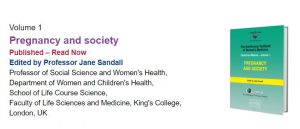
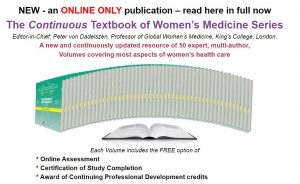
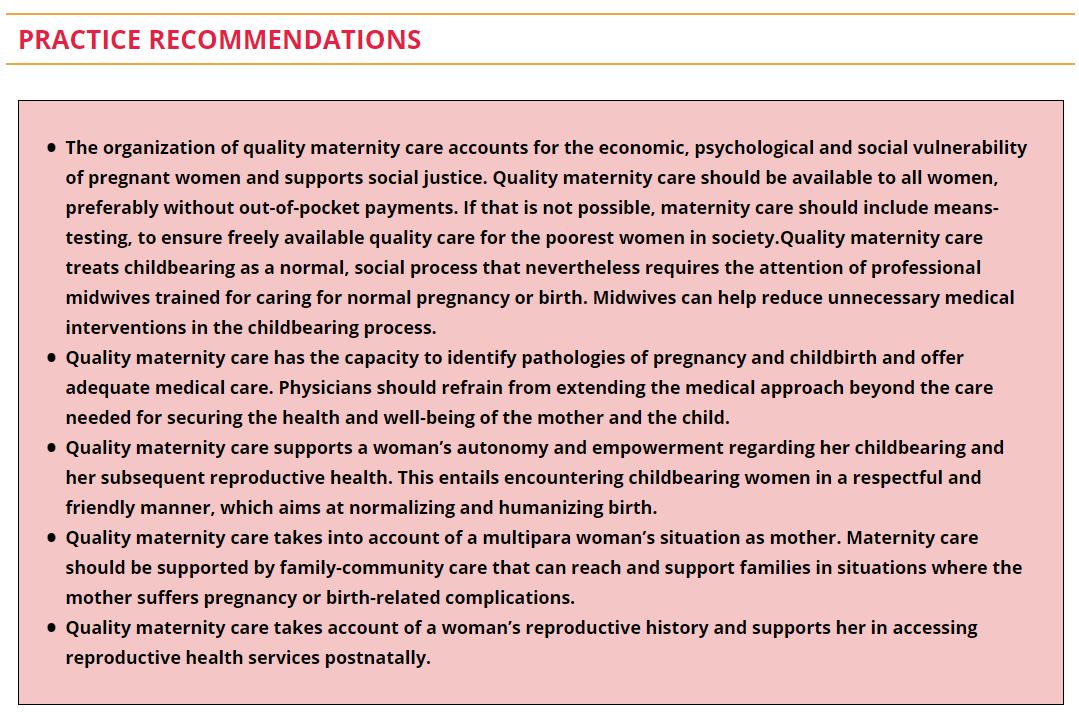

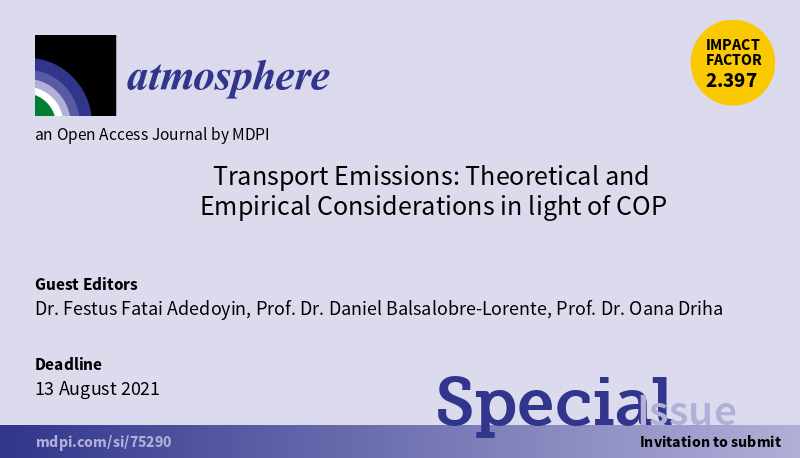
 On Monday, I added a
On Monday, I added a 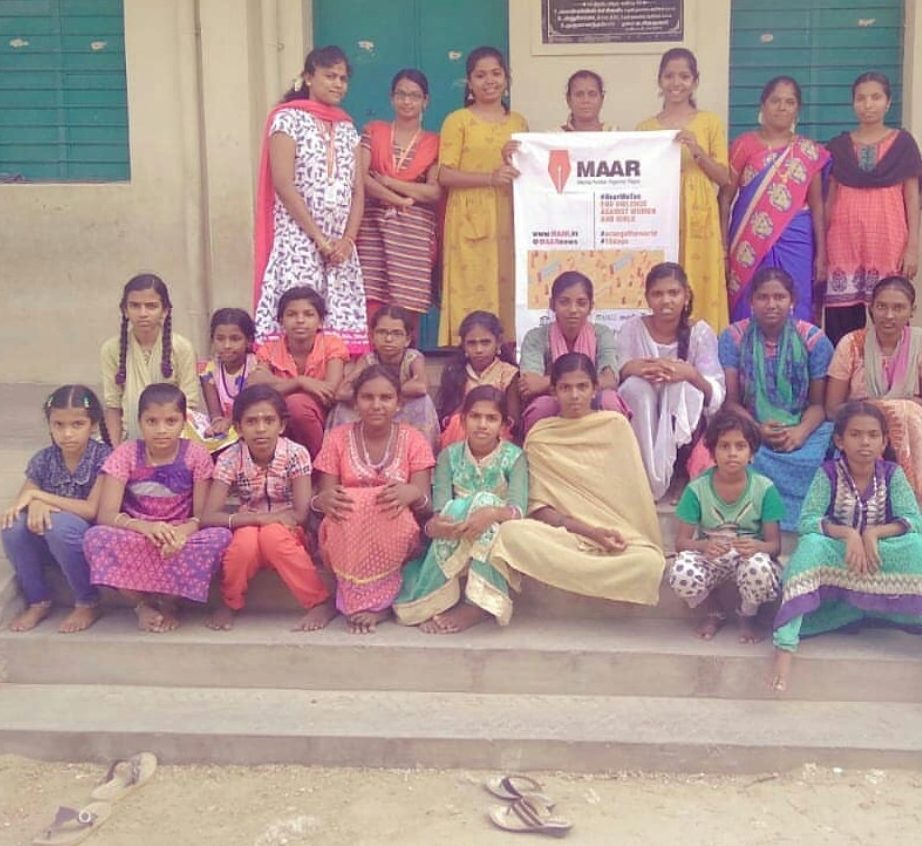
 The RDS Funding Development Briefings now occur weekly, on a Wednesday at 12 noon.
The RDS Funding Development Briefings now occur weekly, on a Wednesday at 12 noon. Indeed, the model was adopted by many universities around the world, including Johns Hopkins University through the recognition that through increased research activity came myriad benefits for society.
Indeed, the model was adopted by many universities around the world, including Johns Hopkins University through the recognition that through increased research activity came myriad benefits for society.


 IMSET is delighted to invite you to the second of our 2021 seminar series on long-term human ecodynamics, to be given by Dr. Ryan Rabett (Queen’s University Belfast) on:
IMSET is delighted to invite you to the second of our 2021 seminar series on long-term human ecodynamics, to be given by Dr. Ryan Rabett (Queen’s University Belfast) on: wrote a blog post on the role of universities in the 21st century and the importance of research, inspired by an article in the Guardian –
wrote a blog post on the role of universities in the 21st century and the importance of research, inspired by an article in the Guardian –  The role of a university has been debated since the nineteenth century. In 1852 Cardinal Newman wrote that the sole function of a university was to teach universal knowledge, embodying the idea of ‘the learning university’. Newman believed that knowledge is valuable and important for its own sake and not just for its perceived use to society (this is quite different from the current thinking on the importance of research impact, public accountability and the value of research findings to society at large, issues which I imagine Newman would have thought of as irrelevant!). There was not a great deal in Newman’s work about the importance of research in a university, but research was beginning to play the starring role in mainland Europe where Prussian education minister Wilhelm von Humboldt wrote of the concept of ‘the research university’ and eventually set up the Humboldt University of Berlin. After the Napoleonic Wars, von Humboldt’s view was that the research university was a tool for national rebuilding through the prioritisation of graduate research over undergraduate teaching. This model soon became the blueprint for the rest of Europe, the United States and Japan. Arguably the Russell Group universities are today still structured in a similar way to that envisaged by von Humboldt two hundred years ago.
The role of a university has been debated since the nineteenth century. In 1852 Cardinal Newman wrote that the sole function of a university was to teach universal knowledge, embodying the idea of ‘the learning university’. Newman believed that knowledge is valuable and important for its own sake and not just for its perceived use to society (this is quite different from the current thinking on the importance of research impact, public accountability and the value of research findings to society at large, issues which I imagine Newman would have thought of as irrelevant!). There was not a great deal in Newman’s work about the importance of research in a university, but research was beginning to play the starring role in mainland Europe where Prussian education minister Wilhelm von Humboldt wrote of the concept of ‘the research university’ and eventually set up the Humboldt University of Berlin. After the Napoleonic Wars, von Humboldt’s view was that the research university was a tool for national rebuilding through the prioritisation of graduate research over undergraduate teaching. This model soon became the blueprint for the rest of Europe, the United States and Japan. Arguably the Russell Group universities are today still structured in a similar way to that envisaged by von Humboldt two hundred years ago. Moving into the twentieth century and we come across American educationalist Abraham Flexner who wrote of ‘the modern university’. In Flexner’s view universities had a responsibility to pursue excellence, with academic staff being able to seamlessly move from the research lab to the classroom and back again. The pursuit of excellence features in many universities strategies and the union and seamless movement between research and education sounds like an early version of BU’s Fusion strategy.
Moving into the twentieth century and we come across American educationalist Abraham Flexner who wrote of ‘the modern university’. In Flexner’s view universities had a responsibility to pursue excellence, with academic staff being able to seamlessly move from the research lab to the classroom and back again. The pursuit of excellence features in many universities strategies and the union and seamless movement between research and education sounds like an early version of BU’s Fusion strategy. The creation and sharing of new knowledge and new ideas has become the principal purpose of many modern universities. In Northern and Western Europe and North America the university has become the key producer of knowledge (through research) and the key sharer of knowledge (through teaching). Professor Eric Thomas (former Vice-Chancellor at University of Bristol) claimed that universities are the knowledge engines of our society having produced the vast majority of society’s breakthroughs and innovations, such as: the computer, the web, the structure of DNA, Dolly the Sheep, and the fibre optic cable. We can now add the COVID vaccine to that list, as developed by the University of Oxford and AstraZeneca. Where would we be without these breakthroughs and would they have come about so quickly without university research?
The creation and sharing of new knowledge and new ideas has become the principal purpose of many modern universities. In Northern and Western Europe and North America the university has become the key producer of knowledge (through research) and the key sharer of knowledge (through teaching). Professor Eric Thomas (former Vice-Chancellor at University of Bristol) claimed that universities are the knowledge engines of our society having produced the vast majority of society’s breakthroughs and innovations, such as: the computer, the web, the structure of DNA, Dolly the Sheep, and the fibre optic cable. We can now add the COVID vaccine to that list, as developed by the University of Oxford and AstraZeneca. Where would we be without these breakthroughs and would they have come about so quickly without university research? The Science, Health, and Data Communications Research Group invites you to our Spring-Summer 2021 research series. These talks are open to the public, and encompass topics on representations of women scientists in the media, health inequalities and COVID-19, how comics are used for health messages, and how politics drives decisions around health and science.
The Science, Health, and Data Communications Research Group invites you to our Spring-Summer 2021 research series. These talks are open to the public, and encompass topics on representations of women scientists in the media, health inequalities and COVID-19, how comics are used for health messages, and how politics drives decisions around health and science.




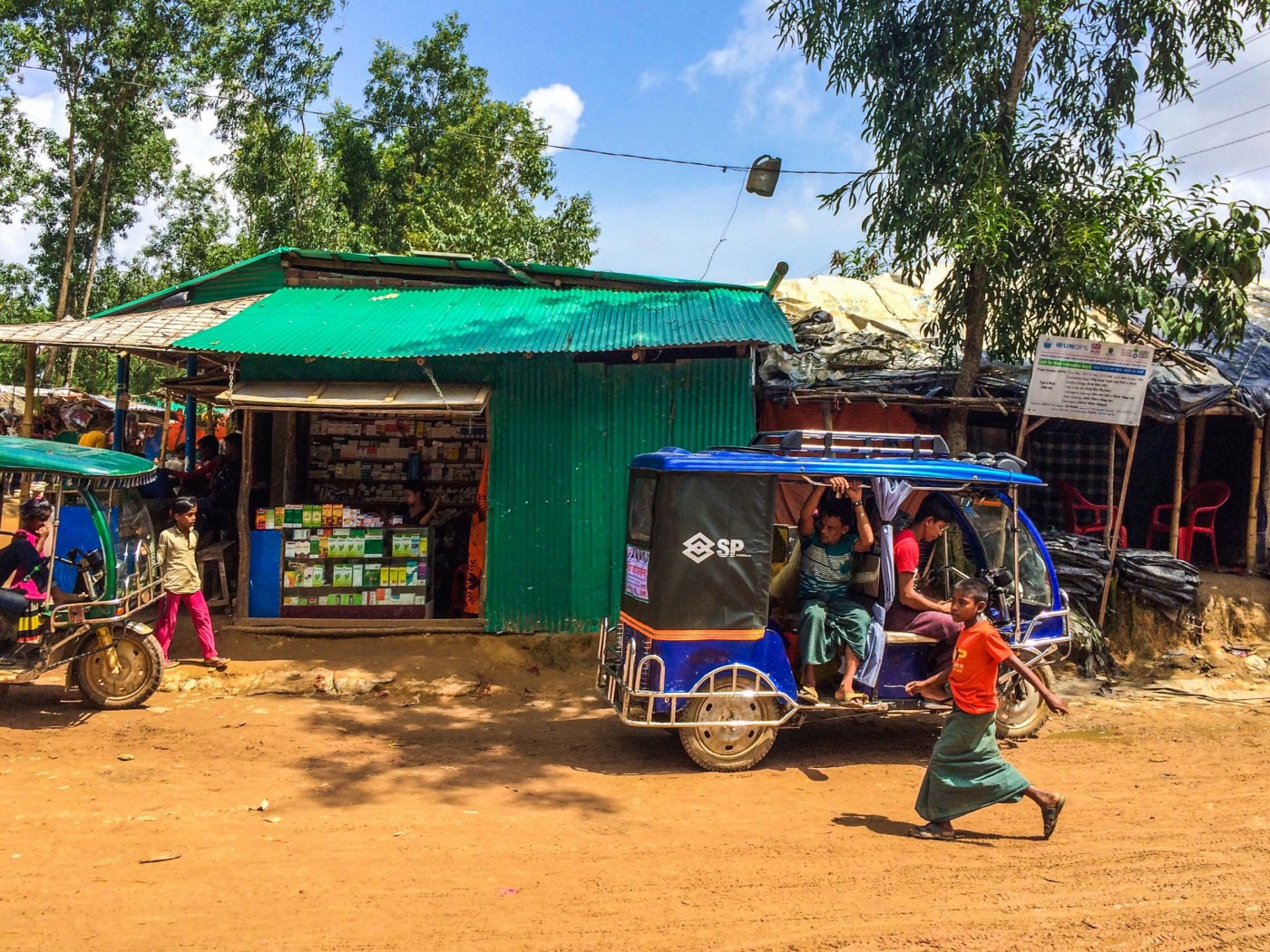












 Connecting Research with Practice: FoodMAPP Secondment in Austria and France
Connecting Research with Practice: FoodMAPP Secondment in Austria and France Health promotion paper read 8,000 times
Health promotion paper read 8,000 times The Beautiful Work Challenge: On Birth
The Beautiful Work Challenge: On Birth Free event on Solutions to Inequalities in Dementia Diagnosis and Care
Free event on Solutions to Inequalities in Dementia Diagnosis and Care MSCA Postdoctoral Fellowships 2025 Call
MSCA Postdoctoral Fellowships 2025 Call ERC Advanced Grant 2025 Webinar
ERC Advanced Grant 2025 Webinar Horizon Europe Work Programme 2025 Published
Horizon Europe Work Programme 2025 Published Horizon Europe 2025 Work Programme pre-Published
Horizon Europe 2025 Work Programme pre-Published Update on UKRO services
Update on UKRO services European research project exploring use of ‘virtual twins’ to better manage metabolic associated fatty liver disease
European research project exploring use of ‘virtual twins’ to better manage metabolic associated fatty liver disease